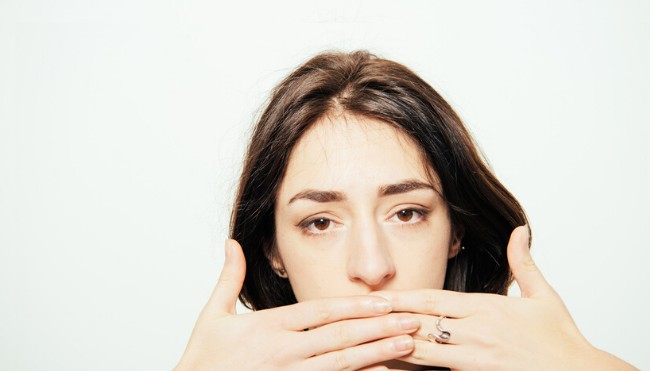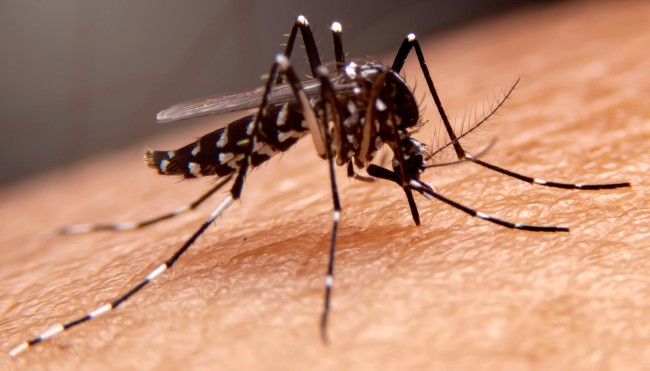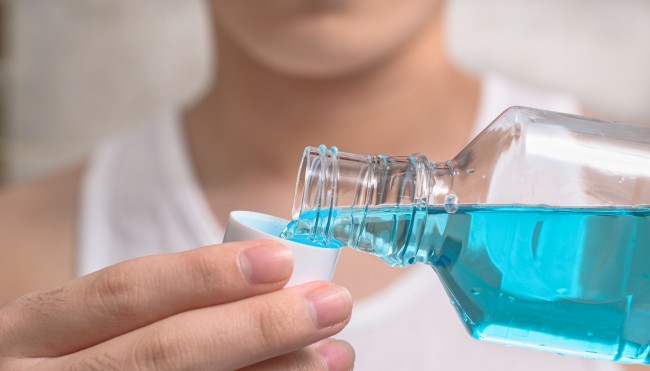The best natural tips against bad breath

Bad breath, known as "halitosis" in technical jargon, is often a real problem for those affected. So that you can breathe easy in the future, we have three natural treatments against halitosis for you. And we also explain how bad breath develops.
How do you recognize bad breath?
To determine whether you suffer from bad breath, you can use the so-called "spoon test". To do this, briefly press your tongue against the back of a spoon. After the saliva has dried, the smell on the spoon tells you what the scent is like in your mouth.
As an alternative to a spoon, you can also use your wrist or a cotton swab. If you are brave enough, you can of course ask another person to help you with the smell test.
Was your bad breath test positive? Don't worry, we have three simple and effective tips to help you against bad breath!
What causes bad breath?
About 90 percent of patients develop bad breath in the oral cavity. There are about 200 possible causes there alone, often several can come together.
Factors in the oral cavity
Bacteria, food residues, cavities, and fungi cause bad breath in the oral cavity. Certain foods such as garlic and onions also cause a "flag". The typical garlic smell can last up to 72 hours.
Reduced saliva flow
Reduced salivation can also cause bad breath. This can be caused by sleeping or by drugs such as iron replacement products, appetite suppressants, antidepressants, sleeping pills, and antihypertensives.
Almond stones
Another factor for bad breath is almond stones, also called tonsil stones. They collect in the palatine tonsils and are visible as small white unpleasant smelling chunks in the throat. They can be removed by an ENT doctor.
Diseases
Diseases such as stomach cancer, kidney disease, and diabetes can also manifest themselves through bad breath. Therefore, if bad breath persists, a doctor should be consulted to rule out possible illnesses.
What helps against bad breath?
Once the cause of your bad breath has been clarified, you can turn directly to the solution of the problem.
All kinds of rinses, sprays, and chewing gum are available in stores. The problem is that many of the ingredients used to preserve, colour, and taste the products are of synthetic origin and are a problem for our health.
At CodeCheck you can recognise such INCI harmful substances by the red part of the evaluation circle. The following applies here: If there is more red displayed, the more problematic substances are contained.
Against bad breath with the power of nature
Our motto is therefore: The more natural, the better! We have three tips for you that help against bad breath naturally:
- Chlorophyll
- Ginger
- Pulling Oil
With these three power tips you can fight the unpleasant smell of your mouth without any synthetic aids.
Chlorophyll
Chlorophyll is found in the leafy green parts of plants. One property of this purely natural substance is that it neutralizes unpleasant bad breath. Perfect! But how does it actually work? According to scientists, chlorophyll influences protein-splitting enzymes and inhibits the growth of bacteria in the mouth. As the latter often causes an unpleasant climate in the mouth, chlorophyll is a strong natural helper against bad breath.
Here's how you use it:
Chlorophyll can be used as a remedy against bad breath in the form of dragées or drops. The latter are taken pure or with a drink.
Ginger
Another natural wonder weapon against bad breath is ginger. The tuber contains the hot tasting 6-Gingerol. A study by the Technical University of Munich and the Leibniz Institute for Food Systems Biology has shown, within a few seconds, the substance to cause an enzyme which breaks down malodorous components in the saliva of the test persons to increase 16-fold! Subsequent analyses of the air they exhaled confirmed the positive effect.
This is how you use it:
To fight your bad breath naturally, you can simply chew a piece of fresh ginger. If this is too spicy for you, any product with ginger extract works just as well. Whether it's candy or tea - the odor is contained in all ginger products, says Thomas Hofmann from the research team.
Oil Pulling
Oil pulling is not only an effective detox method - it also helps against bad breath in several ways. The oil binds toxins and odorous substances in the oral cavity. It also inhibits the growth of unwanted bacteria and fungi in the mouth in the long term.
In addition, the ingredients of the oil, for example the lauric acid in coconut oil, have an antibacterial effect.
This is how you use it:
Take one tablespoon of coconut or olive oil into your mouth on an empty stomach in the morning before brushing your teeth. Keep it in your mouth for about 15 minutes and pull it through your teeth. Attention: Do not swallow it, otherwise the bound toxins will end up back in the body!
After 15 min, spit out the oil and brush your teeth normally.
Very important: Do not flush the oil mixture down the drain, but dispose of it in the trash.
Related Link:
- Study: Food ingredients and their effect on molecules dissolved in saliva





